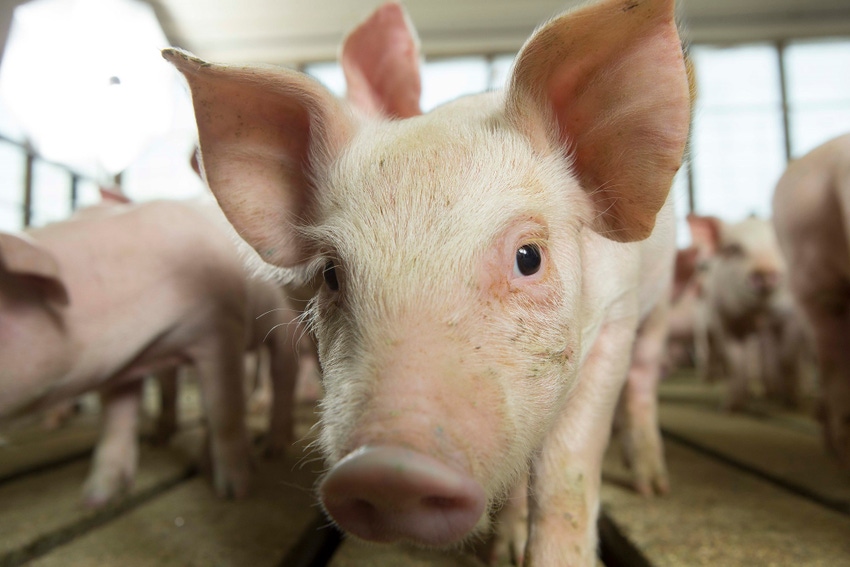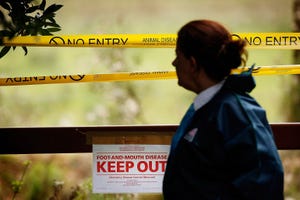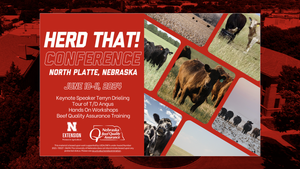USDA vaccine candidate successful in blocking ASF
Candidate has been shown to prevent, effectively protect both European and Asian bred swine against current circulating Asian strain.

The U.S. Department of Agriculture's (USDA) Agricultural Research Service (ARS) announced Sept. 30 that one of its African Swine Fever Virus (ASF) vaccine candidates has been shown to prevent and effectively protect both European and Asian bred swine against the current circulating Asian strain of the virus.
The majority of swine used in the global food supply are produced in Asia, where the virus has been causing outbreaks and devastating losses to the swine industry. ASF was originally detected in 2007 in the Republic of Georgia and is known to cause virulent, deadly disease outbreaks in wild and domesticated swine. Since the original outbreak, ASF has had a widespread and lethal impact on swine herds in various countries in Eastern Europe and throughout Asia. Although the virus is causing profound economic losses to the swine industry, there have not been any outbreaks in the United States. The virus is unable to transmit from pigs to humans.
Newly published USDA research, as highlighted in the journal Transboundary and Emerging Diseases, shows that ARS scientists have developed a vaccine candidate with the ability to be commercially produced while still maintaining its vaccine efficacy against Asian ASF strains when tested in both European and Asian breeds of swine. The findings also show that a commercial partner can replicate experimental level results and prevent the spread of the virus.
Previous studies were done under laboratory conditions only in European bred pigs using an ASF isolate, or sample, from the initial outbreak.
"We are excited that our team's research has resulted in promising vaccine results that are able to be repeated on a commercial level, in different pig breeds, and by using a recent ASFV isolate," said ARS researcher Douglas Gladue. "This signals that the live attenuated vaccine candidate could play an important role in controlling the ongoing outbreak threatening the global pork supply.”
The onset of immunity was revealed in approximately one-third of the swine by second week post-vaccination, with full protection in all swine achieved by the fourth week.
A commercial vaccine for ASFV will be an important part of controlling ASFV in outbreak areas. Researchers will continue to determine the safety and efficacy of the vaccine under commercial production conditions and are closely working with their commercial partner in Vietnam.
"This is a major step for science and agriculture," said ARS researcher Manuel Borca. "We are working carefully to see our vaccine candidate commercialized through the joint efforts of the U.S. government, and our commercial partner, the Navetco National Veterinary Joint Stock Company."
To date, ARS has successfully engineered and patented five ASF experimental vaccines and has fully executed seven licenses with pharmaceutical companies to develop the vaccines. ARS continues to evaluate additional commercial partners to develop these vaccines.
A major step for science and agriculture, a commercial vaccine for ASF virus will be an important part of controlling ASF in outbreak areas. All U.S. vaccine candidates have to go through the APHIS regulatory approval process for use in U.S. swine.
“The partnership between APHIS and ARS is critical in protecting U.S. animal agriculture from devastating diseases like ASF,” said Kevin Shea, APHIS Administrator. “ARS's work in researching and developing vaccine candidates provides valuable tools to animal health organizations worldwide in combating ASF. APHIS is ready to evaluate potential ASF vaccines for use in the United States.”
Agriculture Secretary Tom Vilsack applauded all of the research and protection efforts currently underway at USDA’s ARS and APHIS to prevent the spread of ASF.
“USDA agencies are working together to protect U.S. livestock from foreign and emerging animal diseases that could harm our economy and public health,” said Secretary Vilsack. “I am proud of the extraordinary research underway at the Agricultural Research Service to develop vaccine candidates to prevent African Swine Fever virus. In addition, the Animal and Plant Health Inspection Service has done tremendous work to establish protection zones to safeguard the entire U.S. swine industry. Scientific research, discovery, surveillance and detection are critical to solving challenging problems that American producers face to keep our food supply robust and safe.”
About the Author(s)
You May Also Like




.png?width=300&auto=webp&quality=80&disable=upscale)
